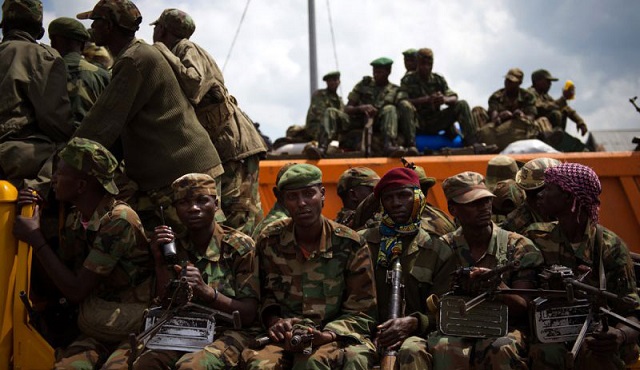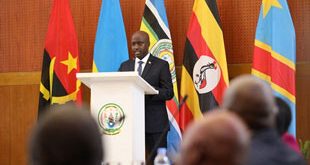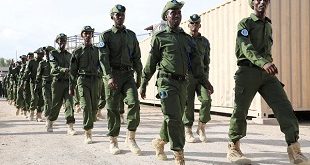
Bunagana, DRC | Xinhua | Bunagana, a once-busy border town in the northeastern Democratic Republic of the Congo (DRC), has been thrust into desolation since it was captured by the March 23 Movement (M23) rebels in June.
A Xinhua journalist who made a visit to this city recently, with the approval to enter the city under the surveillance of the rebellion’s military spokesperson Willy Ngoma, found that activities in this once very hectic city remain suspended, with about 85 percent of its population already fleeing when the rebels arrived and later seized their hometown.
As an important commercial crossroads on the border between the DRC and Uganda, Bunagana, about 70 km northeast of Goma, the capital of the North Kivu province, is strategic in cross-border trade. In November 2012, the M23 occupied Goma for 10 days. This occupation followed eight months of intense fighting in Rutshuru territory which administers Bunagana. Although the rebels withdrew from Goma after heavy international pressure, they continued to control key strategic sites, such as the border town of Bunagana.
A few meters from the border, near the entrance to the fallen city, a checkpoint was set up by the rebellion with a few agents to stand guard and monitor the passage of the local population crossing the border, despite the official closure by both governments.
“We hope there will be a quick solution in a peaceful way to this crisis between the two sides. Nothing is working here. Nothing is working out commercially. It’s sad for us,” an anonymous passerby told Xinhua not far from the checkpoint.
Willy Ngoma, the M23 spokesperson, claimed that Bunagana works “well,” with its people “very comfortable” with the presence of the M23.
The majority of businesses in the city are almost paralyzed and several neighborhoods are nearly empty, except for an almost deserted makeshift market run by a few women to sell farm produce. The tour around the city was, without any doubt, accompanied by Willy Ngoma, the M23 spokesperson, who was secured by a few very young M23 members armed with AK-47s.
Though deprived of necessities, some inhabitants of Bunagana still insist on staying, while waiting for the city to return to normal.
“We have seen fit to stay here at home, even if we do not have access to necessities due to the closing of the border. But we are holding out until the situation is resolved peacefully,” Marceline Mughole, a vendor at Bunagana’s makeshift market, told Xinhua.
The M23 is a group of former rebels of the National Congress for the Defense of the People (CNDP). The name came from the March 23, 2009, agreement between the CNDP and the Congolese government.
After its defeat by the army, the M23 signed a peace accord with the government in December 2013, in which it agreed to demobilize its fighters and transform itself into a political party. M23 leaders, however, have accused the government of failing to respect that agreement.
“For us, there is no other solution apart from the full application of these agreements which bind us with the authorities,” said Willy Ngoma during an exclusive interview granted to Xinhua.
The M23 is also at the heart of a new episode in the diplomatic clashes between the DRC and Rwanda. DRC authorities accuse Rwanda of supporting M23 rebels. Kigali denies any allegation of support for the M23, a charge also refuted by the rebellion’s spokesman during his interview with Xinhua.
 The Independent Uganda: You get the Truth we Pay the Price
The Independent Uganda: You get the Truth we Pay the Price



